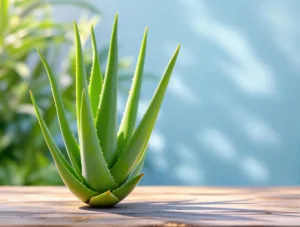The Ultimate Guide to Managing Oily Skin and Preventing Acne Naturally
Introduction
Oily skin is a common dermatological concern affecting millions of people worldwide. Characterized by excess sebum production, oily skin often leads to clogged pores, blackheads, and persistent acne breakouts. While genetics and hormones play a significant role, environmental factors, diet, and skincare habits also contribute to the condition.
This comprehensive guide explores the science behind oily skin, its causes, and evidence-based natural remedies to regulate sebum production and prevent acne. Whether you’re struggling with occasional shine or chronic breakouts, this article provides actionable tips to achieve a balanced, healthy complexion without harsh chemicals.
Understanding Oily Skin: Causes and Contributing Factors
1. The Role of Sebum in Skin Health
Sebum, an oily substance produced by sebaceous glands, is essential for maintaining skin hydration and protecting against environmental damage. However, overproduction leads to greasy skin, enlarged pores, and acne. Factors influencing sebum secretion include:
- Hormonal fluctuations (especially androgens like testosterone)
- Genetics (family history of oily skin)
- Diet (high glycemic and dairy-rich foods)
- Climate (humidity and heat increase oiliness)
- Stress (cortisol spikes trigger excess oil)
2. The Connection Between Oily Skin and Acne
When excess sebum mixes with dead skin cells, it clogs pores, creating an ideal environment for Propionibacterium acnes (P. acnes) bacteria. This leads to inflammation, resulting in:
- Whiteheads & Blackheads (non-inflammatory acne)
- Papules & Pustules (red, inflamed bumps)
- Cystic Acne (deep, painful breakouts)
Understanding these mechanisms helps in adopting targeted skincare strategies.
Natural Remedies for Oily Skin and Acne Prevention
1. Proper Cleansing Techniques
Do:
- Use a gentle, sulfate-free cleanser (e.g., foaming or gel-based).
- Wash twice daily—over-cleansing can strip skin, worsening oiliness.
- Try oil cleansing with jojoba or grapeseed oil to balance sebum.
Avoid:
- Harsh scrubs or alcohol-based toners (disrupt the skin barrier).
- Hot water (triggers more oil production).
2. Exfoliation: Chemical vs. Physical
- Chemical Exfoliants (AHAs/BHAs):Salicylic acid (BHA) penetrates pores, reducing oil and acne.Glycolic acid (AHA) removes dead skin cells, preventing clogging.
- Physical Exfoliants:Use sparingly (1-2x weekly) with fine granules to avoid irritation.
3. Hydration and Moisturizing
Contrary to popular belief, oily skin needs hydration. Lightweight, non-comedogenic moisturizers like:
- Aloe vera gel (soothes and hydrates)
- Hyaluronic acid (locks in moisture without greasiness)
4. Natural Astringents and Toners
- Witch hazel (reduces oil and inflammation)
- Green tea extract (antioxidant-rich, controls sebum)
- Apple cider vinegar (diluted) (balances pH, fights bacteria)
5. Clay Masks for Oil Absorption
- Bentonite & Kaolin clay draw out impurities and excess oil.
- French green clay detoxifies and tightens pores.
6. Diet and Lifestyle Adjustments
- Reduce: Sugar, dairy, and processed foods (linked to breakouts).
- Increase: Omega-3s (chia seeds, salmon), zinc (pumpkin seeds), and antioxidants (berries, leafy greens).
- Hydrate: Drink 2-3L of water daily to flush toxins.
- Manage stress: Yoga, meditation, and sleep regulate cortisol.
7. Essential Oils for Acne-Prone Skin
- Tea tree oil (antibacterial, reduces inflammation—dilute before use).
- Lavender oil (calms redness and regulates oil).
Common Mistakes That Worsen Oily Skin
- Skipping Moisturizer → Leads to dehydration and rebound oiliness.
- Overusing Drying Products → Disrupts skin barrier, causing irritation.
- Touching Face Frequently → Spreads bacteria and triggers breakouts.
- Sleeping with Makeup On → Clogs pores overnight.
Final Summary and Best Practices for Healthy Skin
Managing oily skin and preventing acne requires a balanced approach. Key takeaways:
✔ Cleanse gently—avoid stripping natural oils.✔ Exfoliate wisely—prefer BHAs like salicylic acid.✔ Hydrate properly—lightweight, non-comedogenic moisturizers are essential.✔ Use natural astringents—witch hazel and green tea help control oil.✔ Eat a skin-friendly diet—reduce sugar and dairy; increase antioxidants.✔ Avoid common pitfalls—overwashing and harsh products exacerbate oiliness.
By adopting these natural methods, you can achieve a clearer, balanced complexion without relying on aggressive treatments. Consistency is key—stick to a routine tailored to your skin’s needs, and consult a dermatologist if acne persists.
Would you like additional insights on specific products or DIY recipes for oily skin? Let me know how I can further refine this guide for your needs!









Add comment